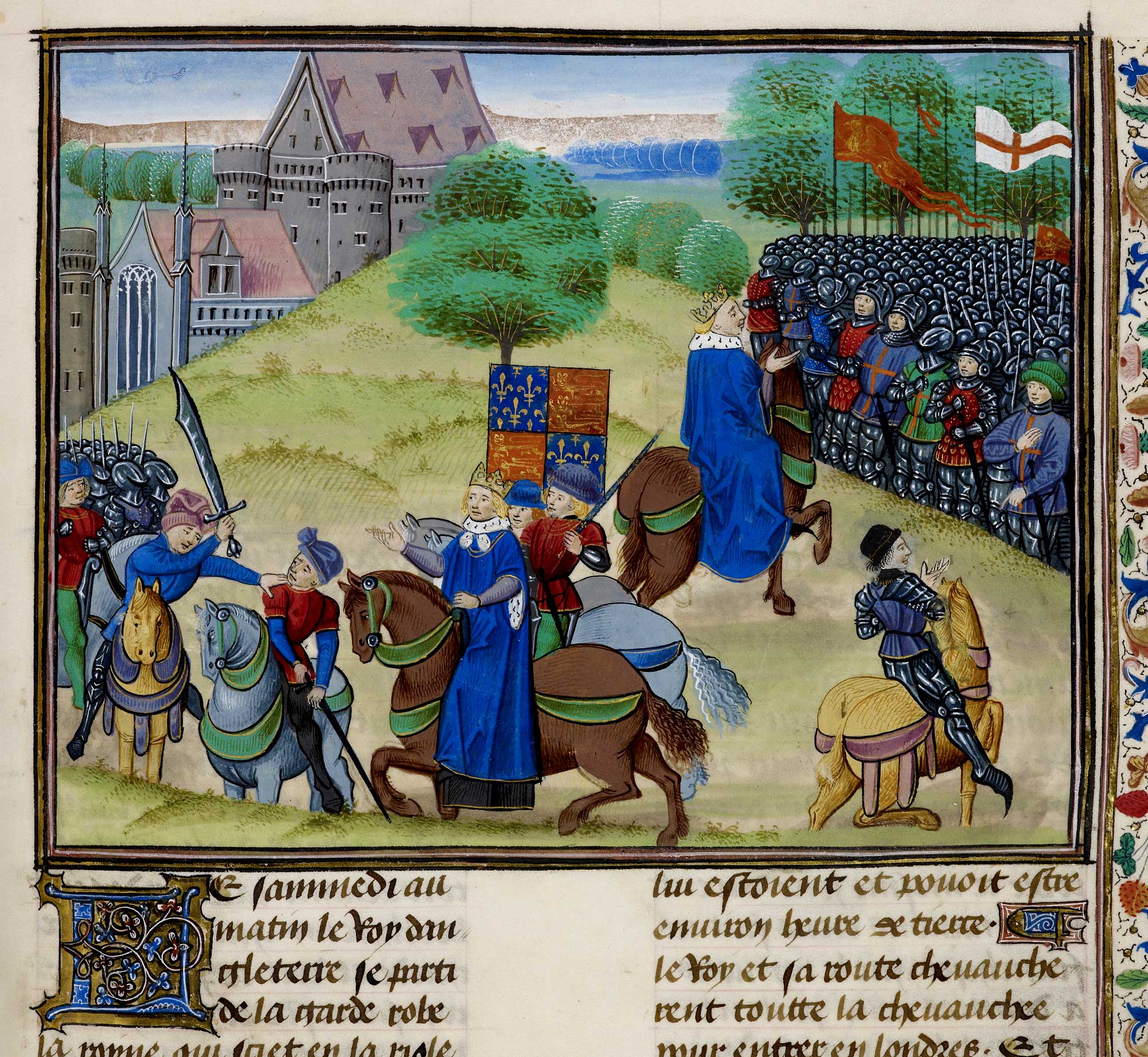
Wat Tyler and the Peasant's Revolt
An Appeal to Loyalists
The old English cause knocks at every man's door,
And bids him stand up for religion and right;
It addresses the rich as well as the poor;
And fair liberty, bids them, like Englishmen fight.
From a rebel throng,
Who, if they're not quelled will enslave us ere long;
Most bravely then let us our liberty prize,
Nor suffer the Congress to blind all our eyes.
Or each rebel cut-purse, will soon give us law,
For they are as bad as a Tyler or Straw.
From France D'Estaing to America has come,
The French banditti will rob our estates;
These robbers are all protected by Rome;
Consult but their annuls, record but their dates,
It's their politics
To burn heretics,
Or poison by water that's fetched from the Styx.
Let Frenchified rebels, in vain then attempt
To bring our own church, or our king to contempt;
For no rebel cut-purse shall e'er give us law,
Should they prove as daring as Tyler or Straw.
The farces of Rome, with carrying her hosts,
Are laugh'd at and jeer'd by the learned and wise,
And all her thin tinsels apparently lost,
Her stories of relics, and sanctified lies.
Each ignorant joke
Believe, or you smoke,
And if we are conquered we receive the Pope's yoke;
But despising the counsels of Adams and Lee,
As loyal Americans, we'll die or be free.
For no rebel cut-throat shall e'er give us law,
Should they prove as daring as Tyler or Straw.
Let cursed most vile, and anathemas roar,
Let half-ruined France, to the Pope tribute pay;
Britain's thundering canon, shall guard safe our shore;
Great George shall defend us, none else we'll obey,
Then France joined by Spain,
May labor in vain,
For soon the Havana shall be ours again.
The French then will scamper and quit every state,
And find themselves bubbled, when morbleu it's too late.
For no Frenchman, or rebel imp of the law
In our old constitution can point out a flaw.